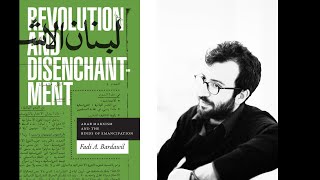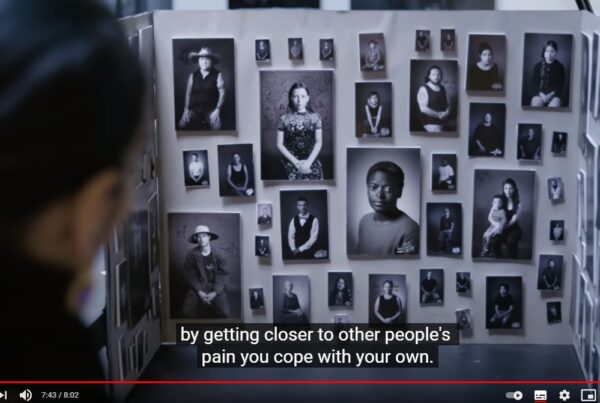 Albert Camus was an Algerian-born French author, philosopher, and journalist who was awarded the Nobel Prize for Literature in 1957. He is often cited as a proponent of existentialism (the philosophy that he was associated with during his own lifetime), but Camus himself rejected this particular label. Specifically, his views contributed to the rise of the more current philosophy known as absurdism. He wrote in his essay The Rebel that his whole life was devoted to opposing the philosophy of nihilism while still delving deeply into individual freedom.
Albert Camus was an Algerian-born French author, philosopher, and journalist who was awarded the Nobel Prize for Literature in 1957. He is often cited as a proponent of existentialism (the philosophy that he was associated with during his own lifetime), but Camus himself rejected this particular label. Specifically, his views contributed to the rise of the more current philosophy known as absurdism. He wrote in his essay The Rebel that his whole life was devoted to opposing the philosophy of nihilism while still delving deeply into individual freedom.
ALBERT CAMUS – BIOGRAPHY
Albert Camus (1913-1960)
Albert Camus was born in Mondovi, Algeria in 1913. His father died one year later, and Camus’ mother raised him alone. His mother was impoverished and nearly deaf, so the two of them moved to Camus’ grandmother’s apartment in the Belcourt section of Algiers, near the Arab Quarter of the city. Camus occupied himself with school and sports, proving to be an excellent student and an admirable competitor. He was tutored by an instructor named Louis Germain at the local school, and in 1923 he passed the lycée entrance exams. He was accepted to the school of philosophy at the University of Algiers, but had to take leave due to a bout with tuberculosis. He recommenced his education in 1930, and financed his time at the university through various odd jobs like working for the Meteorological Institute, selling spare car parts, and private tutoring. He received his diplôme d’études supérieures in 1936, and took his first trip to Europe in the same year under the auspices of improving his health. In 1937 he published his first book, a collection of essays entitled L’Envers et L’endroit.
From 1934 to their divorce in 1936, Camus maintained a short marriage to Simone Hié, the daughter of a wealthy opthalmologist. Camus joined the Communist Party in 1934, but his relationship with the party was not an easy one, and would remain ambivalent throughout his life. Also during his time at university, from 1935-39 Camus, with a group of young left-wing intellectuals, founded the Théâtre de l’Equipe, or the Workers’ Theatre. This group wrote a collective play called Révolte dans les Asturies, which would constitute Camus’ first experience of writing for theatre. They also produced plays by Malraux, Synge, Gide and Dostoevski. The theatre company was intended to produce socialist plays specifically for the audience of Algerian workers.
In 1938 Camus became a journalist for an anti-colonialist newspaper called the Alger-Republicain. He reported specifically on the state of the Muslims of the Kabylie region, attracting public notice and finally rousing the Algerian government to take action. Abridged versions of these articles were published again much later in Actuelles III (1958).
Camus left Algiers in 1940 for Paris, hoping to work as a reporter for the leftist press. This same year the German army invaded France, so he returned to North Africa. He found a teaching position in Oran, and was married for his second time to Francine Faure, a mathematics instructor. Camus was a self-proclaimed pacifist, writing openly against war in Europe, and this put him in danger at this time due to the political right’s rise in power in both France and Algeria. His stay in Oran was short-lived, as he was “advised” to leave Algeria in March 1940, having been declared a “threat to national security”.
Camus’ exile began when he traveled back to Paris. He arrived just before the German army had taken Paris and most of Northern France. What was left of the French army had become demoralized and was in a poor position to be able to defend the city. In 1943 Camus joined “Combat,” a clandestine resistance cell and newspaper that had been founded in 1942 for underground intelligence and sabotage. Camus carried false papers for traveling in occupied territory and adopted the false identity “Beauchard”. He helped by smuggling news of the war to the Parisian public via copies of the Combat paper. He became its editor in 1943, and held this position for four years. His articles often called for action in accordance to strong moral principals, and it was during this period of his life that he formalized his philosophy: that no matter how inexplicable existence might be, human life remains sacred. During the occupation the paper was printed in Lyon, and it moved to Paris after the Liberation in the summer of 1944. The first Paris edition editorial was written by Camus.
During the war, Camus published a number of works which have become associated with his doctrine of the absurd: his idea it is impossible to make rational sense of one’s experience, and human life is made meaningless by mortality. He writes: “This heart within me I can feel, and I judge that it exists. This world I can touch, and I likewise judge that it exists. There ends all my knowledge, and the rest is construction.” The novel, The Stranger (1942; Eng. trans., 1946), has become the quintessential work of fiction of the 20th century on the theme of the alienated outsider. The Myth of Sysiphysus (1942; Eng. trans., 1955) is an essay dedicated to the absurd. He also published two plays consistent with this theme: Cross Purpose (1944, Eng. trans., 1948) and Caligula (1944, Eng. trans., 1948). Although Camus is attracted to contemporary nihilism in these works, he became increasingly more ambivalent in his philosophy towards absurdism. He was not comfortable with the moral indifference necessarily implied by philosophical absurdism, and his political history and experiences in occupied France led him to search for a way to address moral responsibility. He exercised these thoughts in works like Letters to a German Friend (1945), which is published with a number of other political essays, in Resistance, Rebellion, and Death (1960). Part of what makes Camus different from other existentialists and modern philosophers is his fascination for and acceptance of contradiction. Life may be meaningless for the individual, he writes, “but mankind and its societies are larger than one person.”
In 1944 Camus’ wife gave birth to twins, Catherine and Jean. By this time Camus had become a leading voice for the French working class and social change, even attempting to form his own socialist party (a project that was never actualized). He had finally rejected Marxism, and had to endure criticism from many communist factions.
In 1949 Camus had a relapse of his tuberculosis, and he locked himself in seclusion to write. When he recovered in 1951 he published L’Homme Révolté (The Rebel), a text on artistic, historical, and metaphysical rebellion, in which he lays out the difference between revolution and revolt. Camus sees revolt as a peaceful, evolutionary process that requires leadership but not violence. He criticizes Hegel’s work, accusing it of glorifying power and the state over social morality and ethics, and he accuses Marx of co-opting Hegelian philosophy to allow “any means to an end”. Camus prefers Mediterranean humanism, a philosophy grounded in nature and moderation, to the violence and historicism he sees as part and parcel to what he calls the “Absolutist” philosophies. The attacks on Hegel, Marxism and nihilism in The Rebel had a profound effect on Camus’ peers. The book was described as intellectual treason by leftist critics, and a review by Francis Jeanson in Les Temps Modernes accused Camus of being a traitor to the left. After Camus attempted to defend himself in a letter to the publication, Jean-Paul Sartre, the editor of Les Temps Modernes at the time, published an open letter in response that tallied 19 pages. The letter included personal attacks, and marked the end of the two philosophers’ friendship.
Despite his isolation from the French intellectual elite, Camus remained an active advocate for human right, increasing his political activities throughout the 1950s. He began to write for l’Express daily newspaper in 1955, covering the Algerian war. The violence was escalating in Algeria with the arrival of French troops, and Camus saw no hope in ending it. He pleaded, however, for a “civil” truce, which would spare the civilian population from violence and limit it to fighting between troops and rebels. He managed to organize a debate between Muslims and the Front Français, in a public setting, which went without incident, an achievement that earned him the nick-name in Algiers of “Le Colonisateur de Bonne Volonté” or the Well-Meaning Colonialist. He came back into favor with intellectual circles in 1956 with the publication of his novel The Fall. In 1957 he was awarded the Nobel Prize for Literature for his essay Réflexions Sur la Guillotine as an influential work on behalf of human rights.
Throughout his life, Camus continued to work for the theatre, taking on the various roles of actor, director, playwright and translator. The themes of his theatrical work primarily wrest with the human desire for understanding and its conflict with the absurd nature of existence. State of Siege (1948; Eng. trans., 1958) and The Just Assassins (1950; Eng. trans., 1958) are two of his distinctly political plays. He also gained acclaim for his stage adaptations of novels such as William Faulkner’s Requiem for a Nun (1956) and Dostoyevsky’s The Possessed (1959).
On January 4, 1960, Camus died in a car accident near Sens, France, while on his return to Paris with his friend and publisher Michel Gallimard. Found in his papers was the novel The First Man, a fictionalized account of his family history, which was published in 1995.
More about Albert Camus



